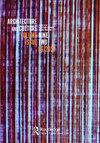Welfare as Warfare: The Role of Modern Architecture during the Colombian Dictatorship
IF 1.8
0 ARCHITECTURE
引用次数: 0
Abstract
Abstract This study draws on the findings of a cultural analysis of the state architecture built in the mid-twentieth century in Colombia and promoted by the former dictatorship of Gustavo Rojas Pinilla. It questions the rationale underlying the infrastructure developed in Bogotá by situating it within the international politics of Latin America during the Cold War. I find that the massive transformation of the built environment during the Rojas regime remains a shadowy and elusive subject, but this does not mean that the regime did not have an agenda for the built environment. Architectural objects were material embodiments of the paradigms of the Modern Movement under the discourse of the welfare state, yet they conveyed the purpose of warfare. Most of these buildings have been largely neglected by canonical studies and communities, despite that they shaped the urban development of the country, and most remain in regular use.福利如战争:哥伦比亚独裁统治时期现代建筑的作用
摘要本研究借鉴了对20世纪中期在哥伦比亚建造的国家建筑的文化分析结果,该建筑由古斯塔沃·罗哈斯·皮尼利亚的前独裁统治推动。它将波哥大发展的基础设施置于冷战期间拉丁美洲的国际政治中,从而质疑其基本原理。我发现,罗哈斯政权时期建筑环境的大规模变革仍然是一个模糊而难以捉摸的主题,但这并不意味着该政权没有建筑环境的议程。建筑对象是福利国家话语下现代运动范式的物质体现,但它们传达了战争的目的。尽管这些建筑塑造了该国的城市发展,但大多数建筑在很大程度上被规范研究和社区忽视了,而且大多数建筑仍在正常使用。
本文章由计算机程序翻译,如有差异,请以英文原文为准。
求助全文
约1分钟内获得全文
求助全文
来源期刊

Architecture and Culture
ARCHITECTURE-
CiteScore
0.80
自引率
0.00%
发文量
25
期刊介绍:
Architecture and Culture, the international award winning, peer-reviewed journal of the Architectural Humanities Research Association, investigates the relationship between architecture and the culture that shapes and is shaped by it. Whether culture is understood extensively, as shared experience of everyday life, or in terms of the rules and habits of different disciplinary practices, Architecture and Culture asks how architecture participates in and engages with it – and how both culture and architecture might be reciprocally transformed. Architecture and Culture publishes exploratory research that is purposively imaginative, rigorously speculative, visually and verbally stimulating. From architects, artists and urban designers, film-makers, animators and poets, from historians of culture and architecture, from geographers, anthropologists and other social scientists, from thinkers and writers of all kinds, established and new, it solicits essays, critical reviews, interviews, fictional narratives in both images and words, art and building projects, and design hypotheses. Architecture and Culture aims to promote a conversation between all those who are curious about what architecture might be and what it can do.
 求助内容:
求助内容: 应助结果提醒方式:
应助结果提醒方式:


